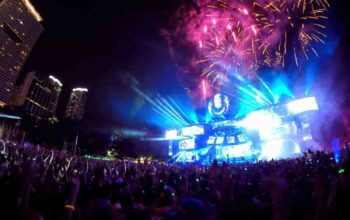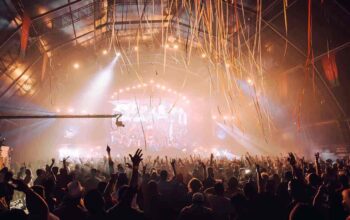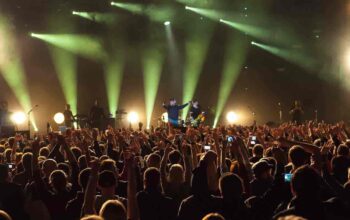How long Does a Music Festival Last.
It’s stressful, we get it. Between trying to find the music festival that best suits you and then finding it, only to realize that you now have to plan one of the biggest trips of your life, preparing for a music festival is no easy task. As someone who has been to over 15 music festivals and has learned (let’s hope!) at least a thing or two, I have devised the ultimate list-to-end-all-lists when it comes to the numbers game for music festivals to make things just a little less stressful for you.
Music Festival Statistics
More people are attending music festivals than at any point in history (approximately 32 million people go to at least one in the U.S. every year), and those are just trends and numbers from 2016. Just under half of that 32 million is made up of millennials (almost 15 million). Of course, the birth of the modern music festival in the United States was in 1969. The Woodstock Music & Art Fair in New York saw more than nearly half a million people alone attend the festival (despite selling around 150,000 tickets). Attendance has only been rising as more and more music festivals are created.
Currently, there are about 800 festivals just in the U.S., and people travel on average 903 miles to attend a music festival (which is longer than the driving distance between Chicago and New York by about 200 miles).
What’s the general timeline for music festivals? The short answer is that, on average, music festivals usually last about three to four days total, depending on the festival in question. The long answer? Well, festivals come in many different shapes and sizes with unique timelines and logistics that you’ll need to consider when deciding which one to attend.
We bet you came to this article wanting to know just how many days festivals last, but we’re better there are a few more considerations you might want to make before diving in.
How many days does a music festival last?
This ultimately depends on the festival you’re thinking of attending. It varies by location and main genre performing or audience targeted, though most music festivals typically last about 3 days (Pitchfork, Governors Ball, Sasquatch, with Coachella and Austin City Limits being some notable exceptions insofar as they last for 3 days but repeat performances for a second weekend). Some have fewer days (FYF Fest and Hot 100 Fest come to mind), and some are longer, with Lollapalooza and Bonnaroo at 4 days, and Summerfest at a whopping 11 days. Some festivals may last the same amount of time and yet provide wildly different experiences for festivalgoers based on what kind of festival it is.
Okay, so what are the different kinds of music festivals?
Obviously music festivals vary widely by genre, festivities, amenities offered, regional location, and kind of festivalgoer typically attracted to specific festivals. But a four-day music festival in a tent is going to feel a lot different from four-days in a hotel, so keep in mind the different kinds of music festivals when deciding which to attend.
1): Camping
Some popular festivals, like Bonnaroo and Coachella, incorporate camping into the overall experience where festivalgoers will typically camp next to their parked car in campgrounds just outside the festival. Obviously, this builds community and creates opportunities for bonding not found in typical settings, but the biggest drawbacks are the unpredictable weather and price-tag for the shopping list. Spending 4 days in June in the South is certainly separate from an AirBnB. Most everything will happen outside, but there may be some inside elements (like pop-up tents, etc.).
2): Venues
Some festivals, like SXSW, operate by providing their showcases at various venues throughout the city. Typically festivalgoers will rent a hotel room or AirBnB in order to access the festival’s offerings, but they are not closed in and separated off from the world like at Coachella. Though this freedom can mean more exploration of the city the festival is happening in, it can also lead to a less cohesive experience like Bonnaroo.
3): Parks
Chicago’s Pitchfork Music Festival and Austin’s ACL both happen in parks that are a part of the city but not necessarily within the downtown area. Think of this as a “best of both worlds” situation: you get the experience of a festival happening in one place without the worry of having to stay there the entire time. In this case, you’d have to find a couch to crash on or a hotel.
If you’re going with the first kind of music festival, make sure you make time to plan ahead and figure out what you need to buy for your glorified camping trip. If you’re going with the last two, then you’ll have to remember to book a hotel room far ahead in advance before prices start to skyrocket.
How long are sets at music festivals? How many songs are in a set?
Sets for a musician aren’t going to last as long as, say, if you were going to see them in concert, so don’t necessarily expect a full album depending on the amount of time they have. Sets typically range from the 45-minute to the 60-minute mark, erring on side of the former. Given that, and also depending on the music genre and whether an artist wants to play the hits or a new album, there can range anywhere from 10 to 20 songs in a set. Headliners and typical sets are different as well.
How long are headliners at music festivals?
Headliners can range from two to three hours, to even more, depending on their time slot and if they’re the last show of the evening. In some cases, typical of jam bands, performances can last into the early morning hours. The amount of time a headliner can perform will also depend on the size of the festival and the location, as some cities have stricter laws regarding music festivals and when they have to close.
How long does it take to get to a music festival?
That’s going to depend on your type of travel and whether you will be driving to park your car at a campsite or flying in to stay in a friend’s apartment, or one of many other possibilities. Always try to give yourself at least a day of travel, though, even if it means coming in a day earlier. Get some extra sleep and your body will thank you later on.
How long does it take to plan for a music festival?
This also depends on so many factors that it’s really hard to calculate. You’ll need to consider if you’re planning a trip across the country, which will obviously take a long time to plan, or if you’ll be going to a music festival at venues in your own city. It also just depends on what kind of person you are! Maybe you like planning a lot, maybe you prefer to live a more spontaneous life–regardless, it’s really up to you how much time you want to put into planning. We, at least, encourage planning a year in advance to give yourself plenty of time to save up money for the trip.
Does a music festival ever really end, anyways?
With the hyper-connected world that we live in today, and with the advent of social media technologies, live streaming, and post-event streams, music festivals aren’t really tethered to a specific time and place. Of course, watching a video of your favorite artist perform for tens of thousands online doesn’t compare to actually being there, but regardless, music festivals can now last forever within the annals of YouTube and other streaming services.




